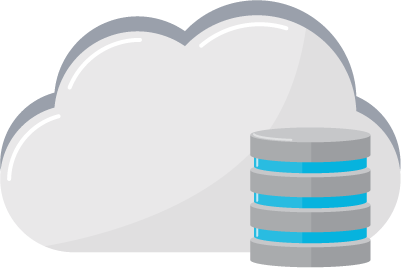March 31st is World Backup Day!
Today, we store so much of our information in digital form. We document our lives with digital photos, videos, and other data. Backing it all up is so easy to do — and yet, too many of us don’t do it!
Key points for data backup
A backup is just another copy of the information you keep on your computer or phone. It’s important to keep a copy of anything irreplaceable in case your files are compromised or you experience a hardware failure.
- Consider which items you need to back up
- Ways we can lose data
- OK, you’ve convinced me. Now where can I back up my data?
- Back up to a USB drive or external hard drive. These are relatively inexpensive and readily available to purchase. Choose a device able to hold more data than the device you are backing up. And be sure to follow the specific directions for backing up your individual operating system.
- If you’d rather back up your files online, consider using OneDrive, Dropbox, Google Drive or Amazon Cloud Drive. These choices don’t have a lot of space available, so you may want to choose to use them only for files you’re currently working on.
- If you want to use an online service to back up your entire device, doing a quick internet search for “online backups” will yield many options in a variety of price ranges.
- But what if I need to back up my work data?
- For more resources regarding World Backup Day
Identify which items need to be backed up. Not all data will meet the requirements, but photographs and important documents like tax returns or mortgage paperwork definitely make the cut. You want to identify anything you cannot replace.
Also consider the location of your files. We might first think to protect the data on our computers, but we also need to consider laptops, phones, iPods, tablets and other wireless devices, as well as photos or videos on social networks.
Anyone who’s ever lost a phone or mobile device knows the importance of backing up the information on that device. Just a single accident or hardware failure can destroy all of your important data!
When we think of ways our data could be compromised, we might first think of a hacker using ransomware to lock our files. But the threats extend far beyond that malicious activity.
Think of circumstances such as theft, hardware failure, natural disaster, alien invasion, obsolete file formats, stolen devices, or just plain old “I lost it”. Losing devices is more prevalent than one might think. One misstep or accident and all your important files could be gone forever!
There are a few places you may choose to back up your data. People usually opt for an external storage device or use a service online. Here are a few suggestions:
Check out your organization's backup policy. Most organizations have detailed backup policies or procedures to safely and efficiently back up your work data. There may be an automated component to your computer backups, or it may be a manual process.
Be sure to familiarize yourself with the guidelines for backing up your data at your organization. And be sure you know who to contact if a breach occurs!
Check out the website World Backup Day. They have a lot of good information, including a press kit and fliers your organization may use!
Keeping your backups safe from ransomware
Ransomware is one of today’s fastest growing cybercrime threats. Ransomware attacks increased substantially in 2020, according to the Sophos 2021 Threat Report. Businesses, organizations, and individuals targeted by ransomware attacks have been able to recover because they were prepared and kept secure and/or offline backups. Here are a few suggestions to keep yourself safe from ransomware attacks:
- Have a plan! Understand the critical data you have and where it’s stored. That’s the first step to begin creating a plan to protect your data.
- Store critical data offline. If the criminals can’t access your data, they can’t destroy it.
- Back up data often and regularly. Ask yourself: how often does your data change? A good data backup contains relevant and recent updates. Different entities may have different backup frequency needs depending on how often your data changes.
- Don’t be reactive, be proactive! Be sure you have a good backup policy. All employees should be aware of your policy and procedures to maintain good backups. Testing your procedures several times a year, whether or not you’ve experienced a ransomware attack, ensures that everyone knows their part and all systems are secure.
- Utilize multiple storage media. If you are able to utilize multiple media, you’ll have options to recover your data in the event of a breach.
Don’t be an April Fool — back up your data!
“World Backup Day was chosen to be the day before April 1st (April Fools) in order to drive the message that one should backup all those pictures, spreadsheets, love letters, cat pictures, & important financial documents before it's too late.” – World BackUp Day Press Kit
Take the World Backup Day pledge. “I solemnly swear to back up my important documents and precious memories on March 31st.” (I will also tell my friends and family about World Backup Day — friends don't let friends go without a backup.)
Tuesday Training… "Business Email Compromise (BEC)"
Karen is asked to process an unusual request, but it’s not her department. Is it business as usual, or is there something more sinister going on here? Part of the "Power Up" program kit.

